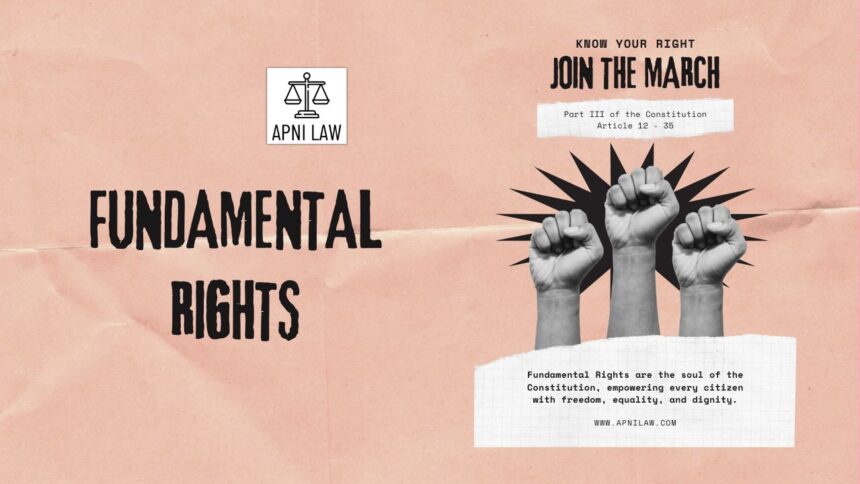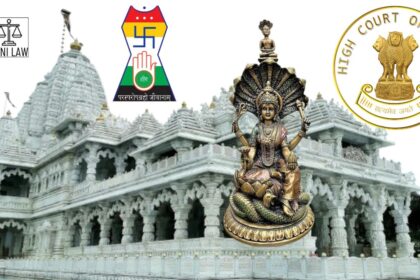Introduction
The Indian Constitution places a strong emphasis on religious liberty as a cornerstone of democracy. Article 26 specifically protects the rights of religious denominations and groups to manage their internal religious affairs. Unlike Article 25, which focuses on an individual’s right to practice and profess religion, Article 26 recognizes the collective rights of communities to maintain and govern their institutions. This provision not only secures freedom of faith but also ensures that diverse traditions continue to thrive in India’s pluralistic society.
Text of Article 26
Article 26 states: “Subject to public order, morality, and health, every religious denomination or any section thereof shall have the right—(a) to establish and maintain institutions for religious and charitable purposes; (b) to manage its own affairs in matters of religion; (c) to own and acquire movable and immovable property; and (d) to administer such property in accordance with law.”
Meaning and Scope of Article 26
Article 26 acknowledges that religion is not just a personal matter but also a community practice. It allows religious denominations to establish and maintain institutions like temples, mosques, churches, monasteries, or charitable bodies. These groups can manage their internal matters of faith without unnecessary interference from the state. At the same time, the provision ensures accountability by allowing regulation of property and finances under the law.
The scope of Article 26 extends to protecting the autonomy of religious groups while maintaining harmony with broader public interests. For example, while communities have the right to manage their institutions, this right cannot override laws made to protect health, morality, or public order.
Judicial Interpretation
The Supreme Court has consistently clarified the balance between autonomy and regulation under Article 26. In Shirur Mutt Case (1954), the Court held that religious denominations have the right to manage their own affairs in matters of religion, and the state cannot interfere in essential religious practices. However, the Court also noted that matters of administration, especially financial management, are open to state regulation.
Another important case, Sri Adi Visheshwara of Kashi Vishwanath Temple v. State of U.P. (1997), highlighted that while the state can take steps to ensure proper management of temples or institutions, it cannot alter or abolish essential religious practices.
Significance of Article 26
The significance of Article 26 lies in its role as a guardian of community rights. It ensures that religious groups can maintain their identity and continue their traditions without fear of arbitrary state action. This protection allows India to preserve its diversity while creating space for communities to contribute to charitable and educational work.
At the same time, Article 26 balances freedom with responsibility. Religious denominations cannot use their autonomy to engage in activities harmful to society. For instance, practices that violate health norms, disturb public order, or infringe on the dignity of individuals cannot claim protection under this Article.
Modern Relevance of Article 26
In today’s context, Article 26 remains highly relevant. It provides legal protection for communities that run charitable hospitals, schools, and other institutions rooted in religious values. It also ensures that marginalized groups, including people with low-income backgrounds, continue to benefit from community-driven initiatives. By protecting the right to manage religious institutions, the Constitution encourages religious communities to remain active participants in social and cultural life.
Frequently Asked Questions (FAQs)
Q1. How is Article 26 different from Article 25?
Article 25 protects individual rights to practice, profess, and propagate religion, while Article 26 safeguards the collective rights of religious denominations to manage their institutions and internal matters.
Q2. Can the state interfere in religious practices under Article 26?
The state can regulate financial and administrative matters but cannot interfere in essential religious practices. Any restriction must be justified under public order, morality, or health.
Q3. Does Article 26 apply only to major religions?
No. Article 26 applies to every religious denomination or section, whether small or large, ensuring equal protection for all communities.
Conclusion
Article 26 is a vital safeguard for India’s religious pluralism. It empowers communities to manage their religious institutions while ensuring that these freedoms align with constitutional principles of public order, morality, and health. By protecting both autonomy and accountability, Article 26 strengthens the idea of secularism and harmony in India. It continues to play an essential role in balancing community identity with national unity, ensuring that religious freedom flourishes without undermining democratic values.
For any specific query call at +91 – 8569843472







